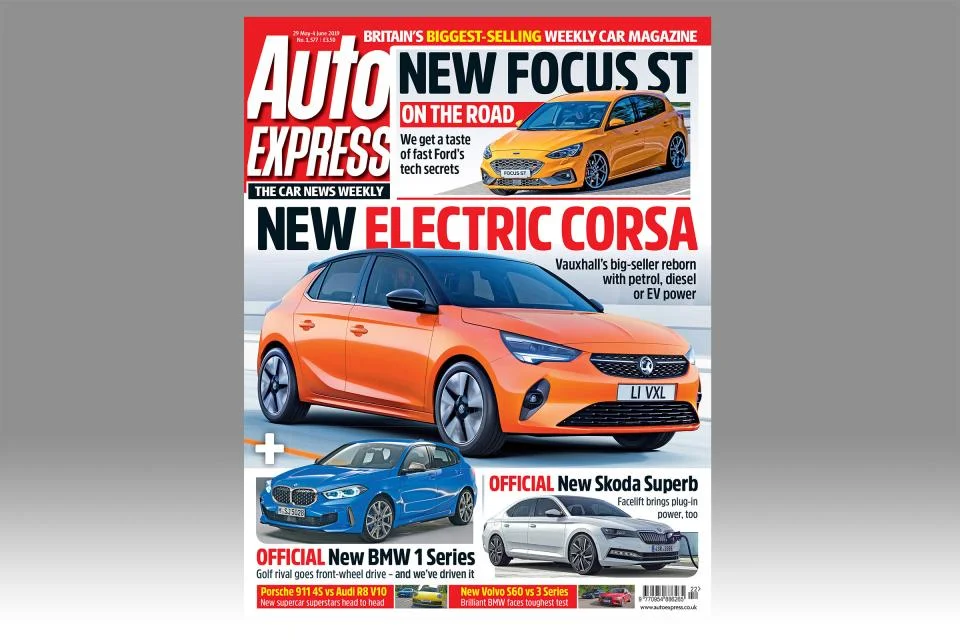
Does your choice of music affect the way you drive?
A recent research exercise by Auto Express magazine, in association with IAM RoadSmart, has found that heavy-metal music could cause motorists to lose their cool behind the wheel, but that the calming tones of classical music might not be much better, encouraging too much relaxation, slowing drivers’ progress. But pop music could be just the ticket, creating the perfect atmosphere for smooth and controlled driving.
In a study to discover the effects of different types of music on driving style and safety, we visited the high-tech racing rig at simulator experts Base Performance Simulators near Banbury, where drivers from the world’s top racing series go to hone their skills.
During the test, consumer reporter Tristan Shale-Hester was tasked with undertaking two simulated precision laps of the Grand Prix track Red Bull Ring in Austria while listening to songs at full volume from four different genres of music – thrash metal, hip-pop, classical and pop.
After setting a control lap time with no music of four minutes 34 seconds, Tristan tried the same test again while listening to the fast and noisy song ‘(sic)’ by heavy-metal band Slipknot.
Tristan was a staggering 14 seconds slower than on his control lap, and his throttle movements were far more jagged while listening to the metal compared to the control lap, and admitted listening to Slipknot made it harder to concentrate on the circuit layout.
Tristan made his next attempt listening to classical music, with the dulcet tones of Bach’s Goldberg Variations on his headphones. But while Tristan’s driving was better with Bach than with Slipknot, he was 12 seconds slower than his control lap, dropping his speed to just 35mph in a 50mph zone without noticing.
Then came ‘Shake It Off’ by Taylor Swift. Tristan’s time when listening to the bouncy pop classic was only two seconds slower than his control time, and IAM RoadSmart expert Tim Shallcross said that it was on this test that Tristan’s laps were “smoothest in terms of speed consistency.”
Finally came the complex hip-hop song ‘Humble’ by Kendric Lamar; although driving to this helped Tristan to a time just one second slower than the control lap, it caused him to overshoot the finish line by four car lengths – a potentially dangerous 60-70ft.
Steve Fowler, editor-in-chief of Auto Express said: “Much of the focus around distracted driving is on using a handheld mobile behind the wheel, and rightly so. But Auto Express’s joint research with IAM RoadSmart shows that as well as making a conscious decision to put their phone away when driving, motorists should also think carefully about what music they listen to.
“While heavy metal was clearly linked to Tristan’s worst lap, classical music fans may be interested to learn that some pieces appear to promote too deep a state of relaxation to be listened to when behind the wheel.”
Tim, IAM RoadSmart head of technical policy, added: “What is clear is that the ferocious thrash metal really reduced the ability of the driver to get around the track smoothly. That, and high-energy dance music, are designed to be felt as well as heard, and to be listened to at volume. It’s clear neither help when it comes to making exacting driving manoeuvres.
“Volume is the major factor for concentration and has a big effect. I would certainly advise drivers to dial down the noise when making a manoeuvre – and save the thrash metal for later in the day, or night!”
Driver distraction comes in many forms. Music, especially if it’s very loud in the car, can affect a driver’s mood and their ability to concentrate on driving. A combination of this and the range of other sources of driver distraction can be a real challenge for drivers, although they may not realise how great the effect can be.
You can read the full article in Auto Express magazine, 29 May 2019.
For further reading, download our whitepaper, Driving While Distracted – Challenges and Solutions.



